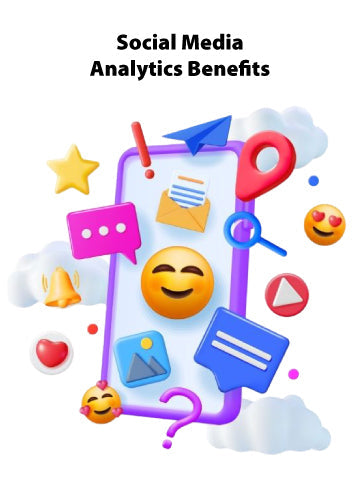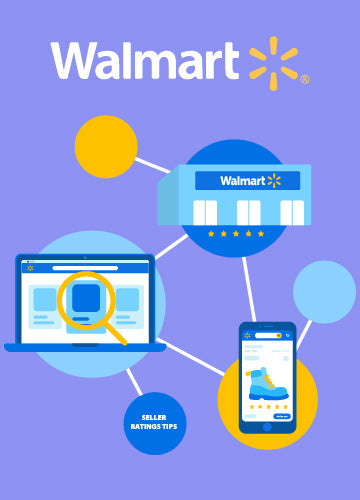In the dynamic world of digital marketing, understanding the terminology is key to implementing effective strategies and achieving your business goals. At Consumr, we're committed to helping you navigate the complexities of marketing with confidence. Whether you're a seasoned marketer or new to the field, this comprehensive glossary will equip you with the knowledge you need to succeed in today's competitive landscape.
A/B Testing
Definition: A method of comparing two versions of a webpage, email, or app to determine which one performs better.
Usage: A/B testing helps marketers optimize their campaigns by testing different elements, such as headlines, images, or calls-to-action, to improve conversion rates.
Analytics
Definition: The analysis of data to gain insights into user behavior, campaign performance, and overall marketing effectiveness.
Usage: Analytics tools like Google Analytics provide valuable data that helps marketers make informed decisions and optimize their strategies.
Bounce Rate
Definition: The percentage of visitors who leave a website without interacting with any elements on the page.
Usage: A high bounce rate may indicate that a website is not engaging or relevant to visitors, prompting marketers to make improvements to reduce bounce rates.
Click-Through Rate (CTR)
Definition: The percentage of people who click on a link, ad, or email compared to the total number of people who view it.
Usage: CTR is an important metric for measuring the effectiveness of marketing campaigns and determining their success.
Conversion Rate
Definition: The percentage of visitors who take a desired action, such as making a purchase or filling out a form, on a website.
Usage: Improving conversion rates is a key goal for marketers, as it indicates that more visitors are taking the desired action.
Customer Lifetime Value (CLV)
Definition: The total value a customer is expected to bring to a business over the course of their relationship.
Usage: Understanding CLV helps marketers determine how much to invest in acquiring and retaining customers.
Demographics
Definition: Statistical data relating to the population and specific groups within it.
Usage: Demographic information, such as age, gender, and income, helps marketers target their campaigns to specific audiences.
Email Marketing
Definition: The use of email to promote products or services and build relationships with customers.
Usage: Email marketing is a cost-effective way to reach customers and drive engagement and sales.
Funnel
Definition: The marketing funnel represents the stages a customer goes through from awareness to purchase.
Usage: Understanding the funnel helps marketers create targeted strategies for each stage to guide customers through the buying process.
Growth Hacking
Definition: A marketing strategy focused on rapid experimentation and testing to identify the most effective ways to grow a business.
Usage: Growth hacking involves using creative and unconventional methods to acquire and retain customers.
Inbound Marketing
Definition: A strategy that focuses on attracting customers through relevant and helpful content, rather than interruptive advertising.
Usage: Inbound marketing aims to build trust and credibility with customers by providing valuable content that addresses their needs and interests.
Key Performance Indicators (KPIs)
Definition: Metrics used to evaluate the success of a marketing campaign or strategy.
Usage: KPIs help marketers track progress towards goals and determine the effectiveness of their efforts.
Landing Page
Definition: A standalone web page created for a specific marketing or advertising campaign.
Usage: Landing pages are designed to convert visitors into leads or customers by providing a clear call-to-action and relevant information.
Lead Generation
Definition: The process of attracting and converting strangers and prospects into leads.
Usage: Lead generation is a critical part of the marketing process, as it helps businesses identify potential customers and nurture them through the sales funnel.
Organic Search
Definition: The process of obtaining traffic from search engines without paying for it.
Usage: Optimizing your website for organic search helps improve visibility and drive more traffic to your site.
Pay-Per-Click (PPC)
Definition: An online advertising model in which advertisers pay a fee each time their ad is clicked.
Usage: PPC advertising is a cost-effective way to drive traffic to your website and increase visibility in search engine results.
Return on Investment (ROI)
Definition: A measure of the profitability of an investment, calculated as the ratio of net profit to the initial cost of the investment.
Usage: ROI helps marketers assess the effectiveness of their marketing campaigns and allocate resources accordingly.
Search Engine Optimization (SEO)
Definition: The process of optimizing a website to rank higher in search engine results pages (SERPs).
Usage: SEO is essential for improving visibility and driving organic traffic to your website.
Social Media Marketing
Definition: The use of social media platforms to promote products or services and engage with customers.
Usage: Social media marketing is a powerful tool for building brand awareness, driving traffic, and increasing sales.
Target Audience
Definition: A specific group of people identified as the intended recipients of a marketing message or campaign.
Usage: Identifying your target audience helps you tailor your marketing efforts to reach the right people with the right message.
User Experience (UX)
Definition: The overall experience of a person using a product or service, especially in terms of how easy or enjoyable it is to use.
Usage: Improving UX is essential for keeping customers engaged and satisfied with your brand.
Viral Marketing
Definition: A marketing strategy that relies on individuals to spread a message or content rapidly to a large audience.
Usage: Viral marketing campaigns aim to create engaging and shareable content that resonates with users and encourages them to share it with their networks.
Web Analytics
Definition: The collection, analysis, and reporting of web data to understand and optimize web usage.
Usage: Web analytics tools provide valuable insights into user behavior, site performance, and marketing effectiveness.
Mastering the language of marketing is essential for success in today's competitive landscape. Whether you're optimizing your website for SEO, running PPC campaigns, or engaging in social media marketing, understanding these key terms will empower you to make informed decisions and achieve your marketing goals. At Consumr, we're here to help you navigate the complexities of marketing and drive your business forward. Contact us today to learn more about how we can support your marketing efforts and help you achieve your business objectives.


